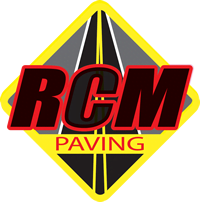Understanding Driveway Steepness and Asphalt Paving
When considering the steepness of a paved driveway, it’s crucial to understand the limitations and possibilities, particularly concerning asphalt paving. Most competent and respectable paving contractors can successfully pave driveways with a 12 percent to 15 percent slope. In extreme cases, with the right architect design business, you may be able to find a highly skilled company to pave up to a 25% angle, which corresponds to 25 feet of rise over 100 feet of paved driveway. Anything above 25% will have to be surfaced with a substance other than asphalt.
According to the American Concrete Pavement Association, if your driveway’s angle is greater than 15%, you should consult with a reputable company; one that understands the “ins and outs” of your local building code requirements and how to design and engineer a paved driveway that will withstand the test of time and nature. Driveways with a 15% angle or greater necessitate more complex designs, and in some situations, asphalt cannot be laid if the grade is too steep due to compactors not being able to operate safely and effectively. So, when looking for the correct contractor, make sure you verify some of their work, verifying they have done similar work and the work has held up.
Depending on where you reside, once you’ve completed all of the necessary processes and chosen the suitable paving provider, you should have a good idea of what your paved driveway approach will look like. If the slope is too steep for a driveway leading straight to the house, it’s a good idea to solicit bids from various driveway design and paving businesses. Meeting with several different contractors will provide you with a clearer image of all of the work that will be required to complete the driveway to your standards. A good paving contractor will propose an engineer or design architect who can design the appropriate driveway for your property while taking into account all of the crucial criteria.
Factors for Homeowners to Consider
Homeowners contemplating driveway paving on steep terrain should consider several factors:
Local Regulations: Familiarize yourself with municipal regulations regarding driveway slope limits and materials permitted. Ensure compliance with these regulations to avoid potential fines or legal issues.
Property Characteristics: Assess the topography of your property thoroughly. Consider factors such as soil composition, drainage patterns, and existing landscaping to determine the most suitable driveway design and materials.
Budget and Long-Term Costs: Evaluate your budget for driveway construction and maintenance. While asphalt is a popular choice for its affordability, alternative materials may be necessary for steeper slopes, potentially affecting overall project costs.
Aesthetics and Functionality: Determine your preferences regarding driveway aesthetics and functionality. Discuss design options with your contractor to create a paved driveway that complements your property’s architectural style while meeting your practical needs.
There are numerous alternatives for off-setting the grade of your paved driveway depending on your budget. If the approach is too steep in a straight line, many businesses create driveways that twist and bend gradually up the slope. There are various possibilities if your property is tiny and space is limited.
- Excavating the hillside: Excavation can create a more gradual slope, reducing the overall steepness of the driveway. This approach requires careful planning to ensure stability and proper drainage.
- Adding turns and bends: Incorporating turns and bends in the driveway design can mitigate the effects of steep gradients. This technique allows for a more gradual ascent, enhancing safety and usability.
- Incorporating transition zone: By gradually increasing the slope near the entrance, transition zones help vehicles adapt to the steeper gradient smoothly. This gradual change enhances safety and maneuverability, especially for vehicles entering or exiting the driveway.
- Incorporating transition gradients: Incorporating gradual gradients throughout the driveway’s length ensures a smoother ride for vehicles. These subtle changes in slope reduce the strain on vehicles and enhance overall comfort during ascent or descent.
Want More Help With Your Paved Driveway?
Contact RCM Paving in North East, MD for expert guidance and assistance with paving steep driveways, reach out to RCM Paving in North East, MD. Our experienced team specializes in asphalt paving and driveway construction, offering tailored solutions to meet your specific needs and preferences for your paved driveway. Contact us today to discuss your project requirements and schedule a consultation with our knowledgeable professionals.

